Introduction
Brief Market Snapshot & ROI Potential
Real estate in Kenya is one of the fastest-growing investment options in the country. Permitted areas, such as Nairobi and Mombasa, as well as certain expanding areas, apply. Meanwhile, satellite towns like Juja, Athi River, and Ngong are attracting buyers due to their affordable land and improved infrastructure. Average rental yields in Nairobi range from 6–8%, with some areas offering higher returns. Land prices in fast-growing towns have doubled in less than a decade, making property a solid long-term play. This shows why many first-time investors see Kenyan real estate as a safe and profitable way to grow wealth.
What This Guide Will Help You Do (Actionable Plan + Resources)
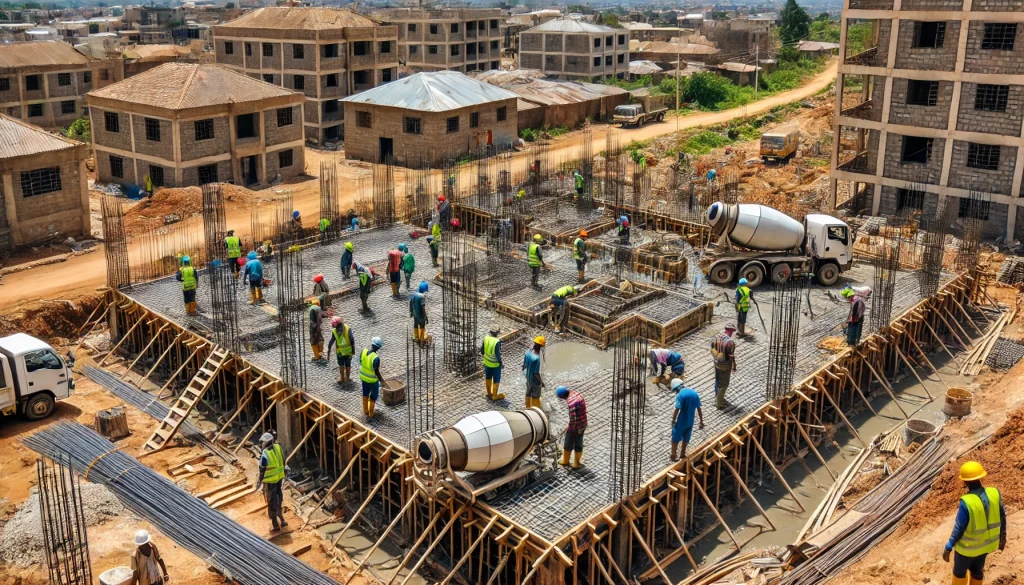
This beginner’s guide on how to invest in real estate in Kenya will walk you step-by-step through the process. You’ll learn how to:
- Set your investment goals and choose the right property type.
- Find the best locations for growth and rental demand.
- Understand financing options, legbe deducted fromcks, and transaction costs.
- Manage property and scale from one unit to many.
By the end, you’ll have a clear roadmap, practical tips, and trusted resources to start your investment journey with confidence.
Set our Goals & Investment Strategy
Income vs Capital Gains vs Hybrid Goals
Every real estate investor in Kenya starts with a goal. Some focus on income, buying rental units or commercial spaces to earn a steady monthly cash flow. Others aim for capital gains, purchasing land or off-plan property with the intention of selling later at a profit. A hybrid strategy combines both — for example, renting out an apartment while waiting for long-term appreciation.
Time Horizon, Risk Tolerance, and Target Returns
Your time horizon shapes your strategy. If you want quick returns, short-term investments like land flipping can deliver, but they come with higher risks. Medium-term options, such as buying an off-plan unit and selling after completion, balance risk and reward. Long-term rentals, on the other hand, provide stable income and are less volatile. In Kenya, average rental yields range between 5% and 8%, depending on the location.
Exit Strategy and Liquidity Planning
Property is not as liquid as stocks or savings accounts, so you must plan your exit from the start. Will you sell when the market peaks, refinance to release equity, or hold the property for inheritance? Having a clear exit strategy helps you stay financially flexible and avoid being locked into one option if conditions change.
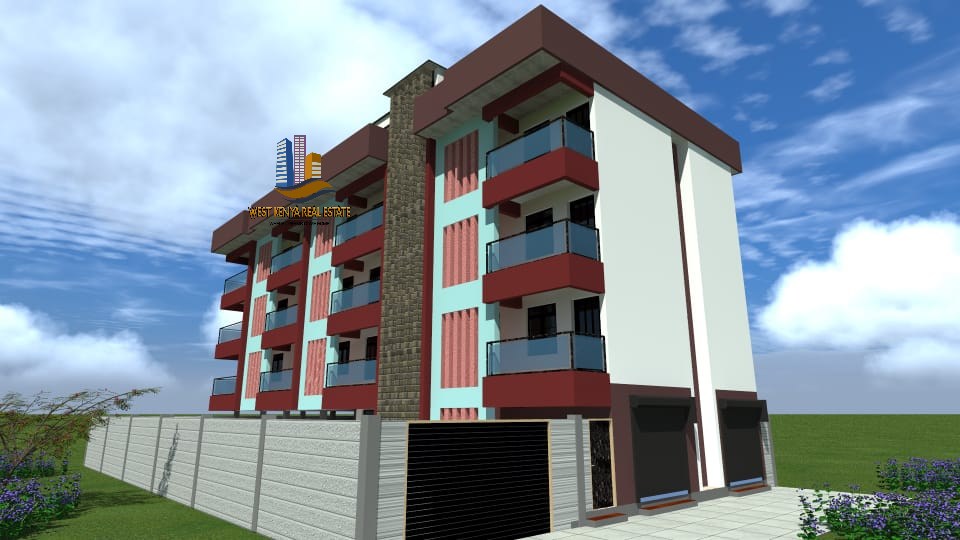
Property Types & Entry Options (Land, Apartments, Commercial, REITs)
Land vs Apartments vs Commercial — Pros and Cons
Land remains one of the most popular investments in Kenya due to its appreciation potential and relatively low maintenance. However, it does not provide immediate income. Apartments are attractive for rental yields, especially in Nairobi, Mombasa, and Kisumu, but they require higher capital and ongoing management. Commercial properties such as office blocks and retail spaces can generate higher returns, yet they often demand significant capital and are affected by economic cycles.
REITs & Listed Property Funds — How to Enter with Low Capital
For beginners with limited funds, Real Estate Investment Trusts (REITs) offer an accessible entry point. They allow you to invest in real estate without owning physical property. With as little as KES 5,000, you can buy into a REIT listed on the Nairobi Securities Exchange (NSE). This approach provides diversification, passive income, and professional management, making it an attractive option for small investors.
Off-Plan vs Completed Units — Unique Risks
Buying off-plan can be cheaper than purchasing completed units, minimising your chance to benefit from price appreciation once construction is done. However, it comes with risks such as developer delays, stalled projects, or quality issues. Completed units, though more expensive, provide immediate possession and rental income. Beginners should always conduct thorough due diligence before committing to either option.
Market Research & Location Selection
Nairobi Micro-Markets vs Satellite Towns (Athi River, Juja, Ngong, Kisumu, Mombasa)
Location is one of the biggest drivers of real estate returns in Kenya. Nairobi’s micro-markets like Kilimani, Westlands, and Upper Hill offer high rental demand but also higher entry costs. Satellite towns such as Athi River, Juja, and Ngong are popular with middle-income buyers and developers due to lower land prices and better affordability. Outside Nairobi, cities like Kisumu and Mombasa are emerging growth hubs, driven by trade, tourism, and infrastructure expansion.
Infrastructure, Planned Projects, and Demand Signals
Infrastructure projects often boost property values. New highways, bypasses, SGR extensions, or planned airports can transform an area’s desirability. For instance, the Nairobi Expressway significantly increased demand for property near Syokimau and Mlolongo. Pay attention to demand signals such as growing populations, new schools, universities, or shopping centres — these often indicate where housing needs will rise.
Using Local Data & Agent Intel
Beyond headlines, you need actionable, on-the-ground data. Check county government zoning plans, property transaction records, and reports from agencies like HassConsult. Local real estate agents, property managers, and valuation experts can also provide insights into vacancy rates, rent trends, and realistic pricing. Combining official data with agent intel helps you avoid overpaying and spot high-growth areas early.
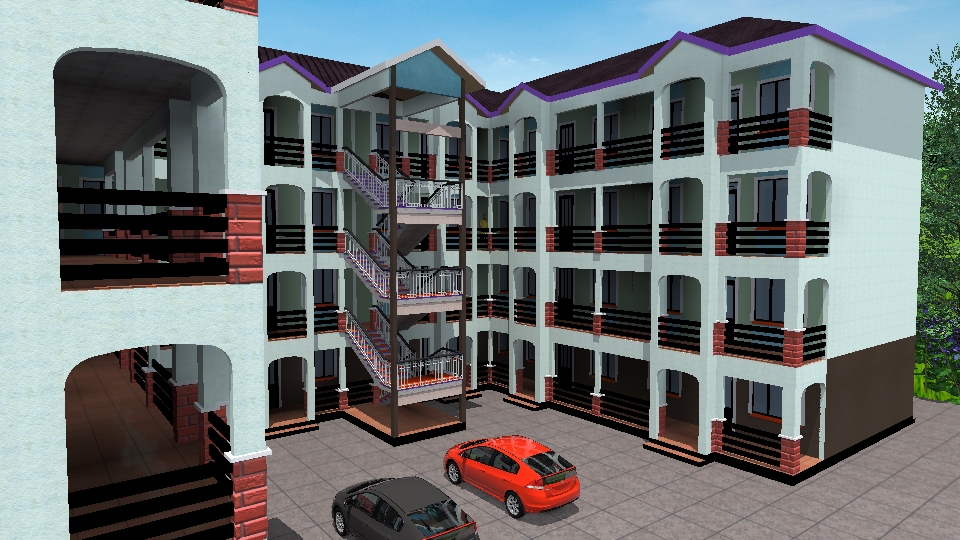
Financing & Capital Structures
Mortgages in Kenya — Rates, Eligibility, Banks
Mortgages are one of the most common ways to finance property, but access in Kenya can be restrictive. Interest rates typically range between 12%–15%, with repayment terms of 10–25 years. Eligibility depends on your income stability, credit history, and property type. Leading banks such as KCB, Equity, and Cooperative Bank offer various mortgage products, while the Kenya Mortgage Refinance Company (KMRC) is helping improve affordability.
Partnering, Syndication, Crowdfunding, and Diaspora Funding
If bank financing feels out of reach, partnerships and syndication allow multiple investors to pool capital and share ownership. Real estate crowdfunding platforms are also emerging, letting small investors buy into larger projects. Diaspora funding is another strong channel, as many Kenyans abroad invest in local property through trusted developers or family partnerships. These structures reduce risk while improving access to higher-value investments.
Related post: Kenya Real Estate Market Trends 2025
When to Leverage REITs or Mortgage Financing
Not every deal requires debt. For beginners with limited capital, REITs can be an entry step before moving into physical property. For larger projects, mortgage financing works best when expected rental yields are higher than the borrowing cost. Always weigh the cost of capital against expected returns — borrowing makes sense if the cash flow comfortably covers loan repayments and leaves room for profit.

Due Diligence & Legal Checks
How to Verify Title Deeds at the Land Registry (Step-by-Step)
Before buying land or property, confirming ownership is non-negotiable. The process involves:
- Visiting the Ministry of Lands or the local county land registry.
- Conducting a search using the title deed number.
- Confirming the registered owner’s details match the seller’s.
- Checking if the land is free from disputes or restrictions.
This step protects you from fraud and double allocation, which are common pitfalls in Kenyan real estate.
Encumbrances, Caveats, Land Rates, Surveys
A property may carry encumbrances such as unpaid land rates, loans charged to the title, or caveats placed by third parties. Always request an official search to confirm the property is free of such issues. Additionally, ensure land rates and rent (where applicable) are cleared with the county government. A physical survey by a licensed surveyor helps confirm that the boundaries align with the title deed.
Why You Must Work With a Lawyer & Surveyor
While some beginners try to cut costs by skipping the professionals, this exposes them to major risks. A real estate lawyer will draft and review sale agreements, confirm legal compliance, and protect you during transactions. A licensed surveyor ensures you are buying the correct piece of land and not encroaching on road reserves or neighbouring plots. Their small fees can save you millions in the long run.
Related post: Affordable Housing Projects in Kenya – Opportunities & How to Benefit
Buying Process & Transaction Costs
Negotiation → Agreements → Title Search → Transfer
The property buying journey in Kenya follows a structured path. First, negotiate and agree on the price with the seller or agent. Next, your lawyer drafts a Sale Agreement that outlines payment terms and conditions. A title search is then conducted at the land registry to confirm ownership and any encumbrances. Once verified, payments are made (often in instalments), and the transfer of ownership is registered with the Ministry of Lands.
Stamp Duty, Legal Fees, VAT & Hidden Charges
Besides the property price, buyers should budget for transaction costs. These typically include:
- Stamp duty: 2%–4% of the property value, depending on location.
- Legal fees: About 1.5% of the transaction value.
- Valuation fees: Payable if financing is through a bank.
- VAT (16%): Applicable to certain commercial properties or new builds.
- Hidden charges: Service charges, agent commissions, and county land rates may also apply.
Typical Transaction Timeline
A smooth property transaction in Kenya usually takes 30–90 days. Title searches and agreement drafting take the first few weeks, while payment processing and government approvals make up the rest. Delays may occur if there are disputes, incomplete documentation, or a backlog at the land registry. Proper planning and professional guidance can help speed up the process.
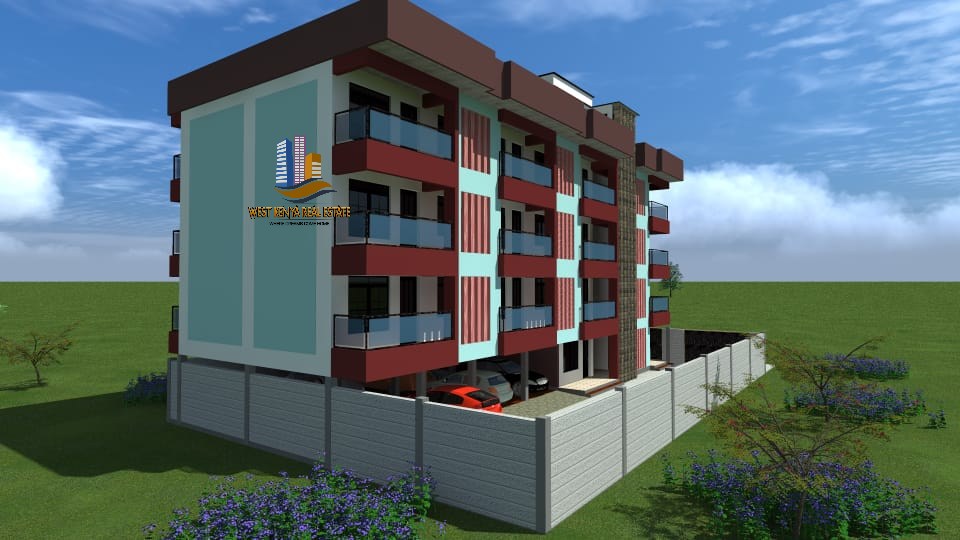
Tax, Compliance & Foreign/Diaspora Rules
Can Foreigners/Diaspora Invest? Ownership Structures Explained
Foreigners and Kenyans in the diaspora are allowed to invest in real estate, but there are restrictions. For example, non-citizens cannot own freehold land but can lease property for up to 99 years. Many use company structures, joint ventures, or trusts to hold property legally. Diaspora investors often prefer buying through established developers, investment groups, or diaspora-focused housing schemes for safety and convenience.
Taxes — Rental Income, Capital Gains, Allowable Deductions
Kenya has specific tax obligations for property owners:
- Rental income tax: Residential landlords pay a flat 7.5% tax on gross rent (effective 2024).
- Commercial property tax: Based on corporate tax rates after allowable expenses.
- Capital gains tax (CGT): Charged at 15% of the profit when selling property.
Allowable deductions: Repairs, maintenance, insurance, and property management costs can reduce taxable income.
Repatriation of Funds & Compliance Best Practices
For diaspora investors, moving money in and out of Kenya requires compliance with the Central Bank of Kenya (CBK) rules. Funds must come through formal banking channels to ensure smooth repatriation later. To stay compliant, investors should:
- Keep proper rent and expense records.
- File annual tax returns via iTax.
- Use licensed banks and registered property agents.
Following compliance practices helps avoid disputes with the Kenya Revenue Authority (KRA) and ensures the long-term sustainability of your investment.
Related post: The Impact of Inflation on Property Prices in Kenya
Property Management & Scaling from 1 → Many
Self-Manage vs Property Managers (Cost Comparison)
Managing property yourself can save costs but requires time, effort, and tenant-handling skills. A property manager typically charges 8–12% of rental income in Kenya, but they take care of rent collection, repairs, and tenant issues. For beginners with one unit, self-management may work. As you scale to multiple properties, a professional manager becomes more efficient and reduces stress.
Tenant Screening, Leases, Rent Escalation
Good tenants make or break an investment. Always conduct background checks, request references, and verify employment before signing leases. Clear lease agreements should define rent amount, due dates, maintenance responsibilities, and penalties. Kenyan landlords often include rent escalation clauses (usually 5–10% every 1–2 years) to keep up with inflation and market demand.
Scaling Strategy: Refinancing, Equity Partners, Reinvestment
Growing from one property to many requires a strategy. Refinancing lets you release equity from existing property to fund new purchases. Equity partners (friends, family, or syndicates) help pool resources for larger projects. Reinvesting rental income into additional properties builds long-term wealth and diversifies income streams.
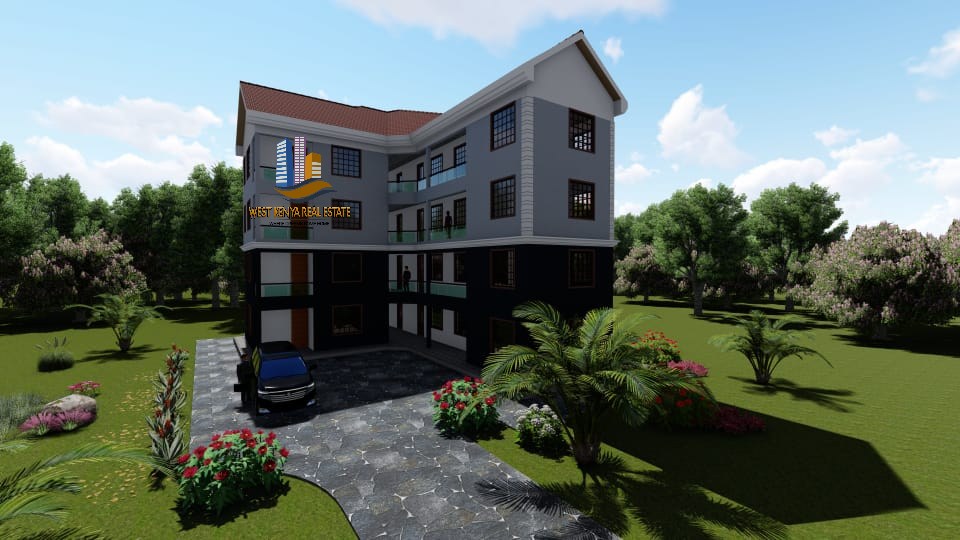
Risks, Fraud Prevention & Mitigation
Common Scams & Title Fraud — Prevention Checklist
Fraud is a real threat in Kenya’s property market. Scammers may sell land they don’t own, forge documents, or sell the same plot to multiple buyers. Prevention checklist:
- Always conduct a land registry search.
- Use a licensed lawyer & surveyor.
- Avoid paying cash without receipts.
Verify the seller’s identity with the registrar.
Market Risks: Oversupply, Interest Rate Shifts, Inflation
The property market faces economic risks too. Oversupply in Nairobi’s luxury apartments has pushed rental yields down. Rising interest rates increase mortgage costs, reducing affordability for buyers. Inflation erodes rental income if escalation clauses are missing. Investors should diversify across locations and property types to minimise exposure.
Insurance, Warranties & Risk Buffers
Insurance protects against losses from fire, theft, or natural disasters. Some developers offer warranties on new builds, covering defects for a limited time. Building risk buffers — like emergency funds, conservative leverage, and diversified investments — helps investors survive downturns without forced sales.

Related post: What Kind of Apartment Can I Build with Kshs.70M in Isinya?
Actionable Checklist + Case Studies
10-Point Beginner’s Checklist
Before committing your money, use this simple checklist to stay safe and focused:
1. Define your investment goal (income vs appreciation).
2. Choose your time horizon & risk tolerance.
3. Select the property type (land, apartment, commercial, REIT).
4. Conduct market research on location & demand.
5. Verify title deed & ownership at the land registry.
6. Budget for transaction costs (stamp duty, legal fees).
7. Secure financing or partners if needed.
8. Draft and sign a sale agreement with a lawyer.
9. Plan for property management (self vs manager).
10. Register property and keep tax compliance up to date.
Mini ROI Examples (Land Flip, Rental Apartment, REIT Entry)
- Land Flip: Buying a plot in Juja at KES 1.5M and selling two years later for KES 2.2M → ~47% gain.
- Rental Apartment: A KES 8M apartment in Kilimani generating KES 65K monthly rent → ~9.8% gross annual yield.
- REIT Entry: Investing KES 50,000 in a listed REIT with 6% annual distribution → KES 3,000 passive income per year.
These examples show different entry levels — from small capital REITs to medium and large-scale property plays.
Related post: Land Transfer Costs in Kenya Explained
Success in Kenyan real estate often comes down to the people you work with. Beginners should connect with:
- Lawyers → members of the Law Society of Kenya (LSK).
- Surveyors & Valuers → registered with the Institution of Surveyors of Kenya (ISK).
- Agents → licensed under the Estate Agents Registration Board (EARB).
- REIT Platforms → such as Stanlib Fahari I-REIT and Acorn Student Housing REIT.
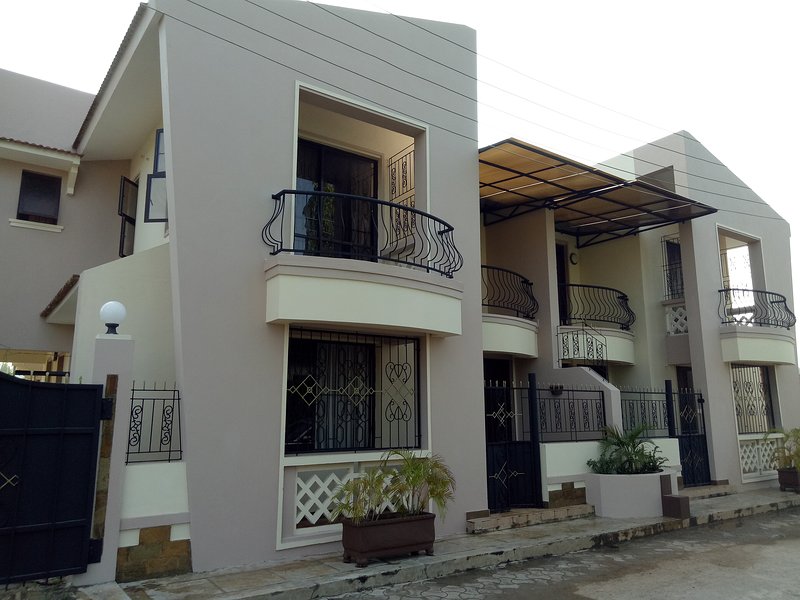
Related post: What Apartment Can You Build with Ksh 40 Million in Syokimau? Units, Rental Income & ROI Explained
Conclusion
Learning how to invest in real estate in Kenya as a beginner doesn’t have to be overwhelming. With the right strategy, verified legal checks, and smart financing, you can build long-term wealth and passive income. Start small — whether through land, apartments, or REITs — and scale gradually as you gain experience.
The key is to stay informed, work with trusted professionals, and always plan with an exit strategy in mind. Real estate in Kenya continues to be one of the most reliable ways to secure financial freedom, whether you’re a local or diaspora investor.
Frequently Asked Questions (FAQ)
- What is the minimum amount needed to invest in real estate in Kenya?
You can start with as little as KES 50,000 through REITs, while land in satellite towns starts from KES 500,000–1M. Apartments usually require KES 3M+.
- Is land or rental property more profitable for beginners?
Land offers faster capital appreciation but no immediate income. Rental property provides steady monthly cash flow, though it requires more capital and management.
- How can Kenyans in the diaspora safely invest in real estate?
Diaspora investors should work with licensed agents, surveyors, and lawyers, and send money through formal banking channels. Buying from established developers or listed REITs is safer.
- What are the main risks in Kenyan real estate investment?
The biggest risks are title fraud, oversupply of apartments, high interest rates, and hidden charges. These can be reduced with due diligence, diversification, and proper legal support.
- How do I check if a title deed is genuine?
Visit the land registry with the title number, conduct an official search, and confirm the owner’s name, plot size, and any encumbrances. Always cross-check with a lawyer and surveyor.
- Are REITs a safe way to start real estate investing?
Yes, REITs are regulated by the Capital Markets Authority (CMA) and listed on the NSE. They offer small investors affordable, diversified, and transparent entry into property markets.
- What taxes apply when selling or renting property in Kenya?
Rental income tax: 7.5% on gross rent (for residential).
Capital gains tax: 15% on profits from a sale.
VAT: 16% on some commercial properties.
- How long does a typical property purchase take in Kenya?
On average, 30–90 days. This depends on the title search, agreement drafting, payments, and registration at the Ministry of Lands. Delays are common if documents are incomplete.
Related post: Affordable Apartment Designs in Kenya Under 50 Million: Best Plans for High ROI
Related Post: Cost of Land in Kiambu vs Machakos Counties (2025 Guide & Comparison)

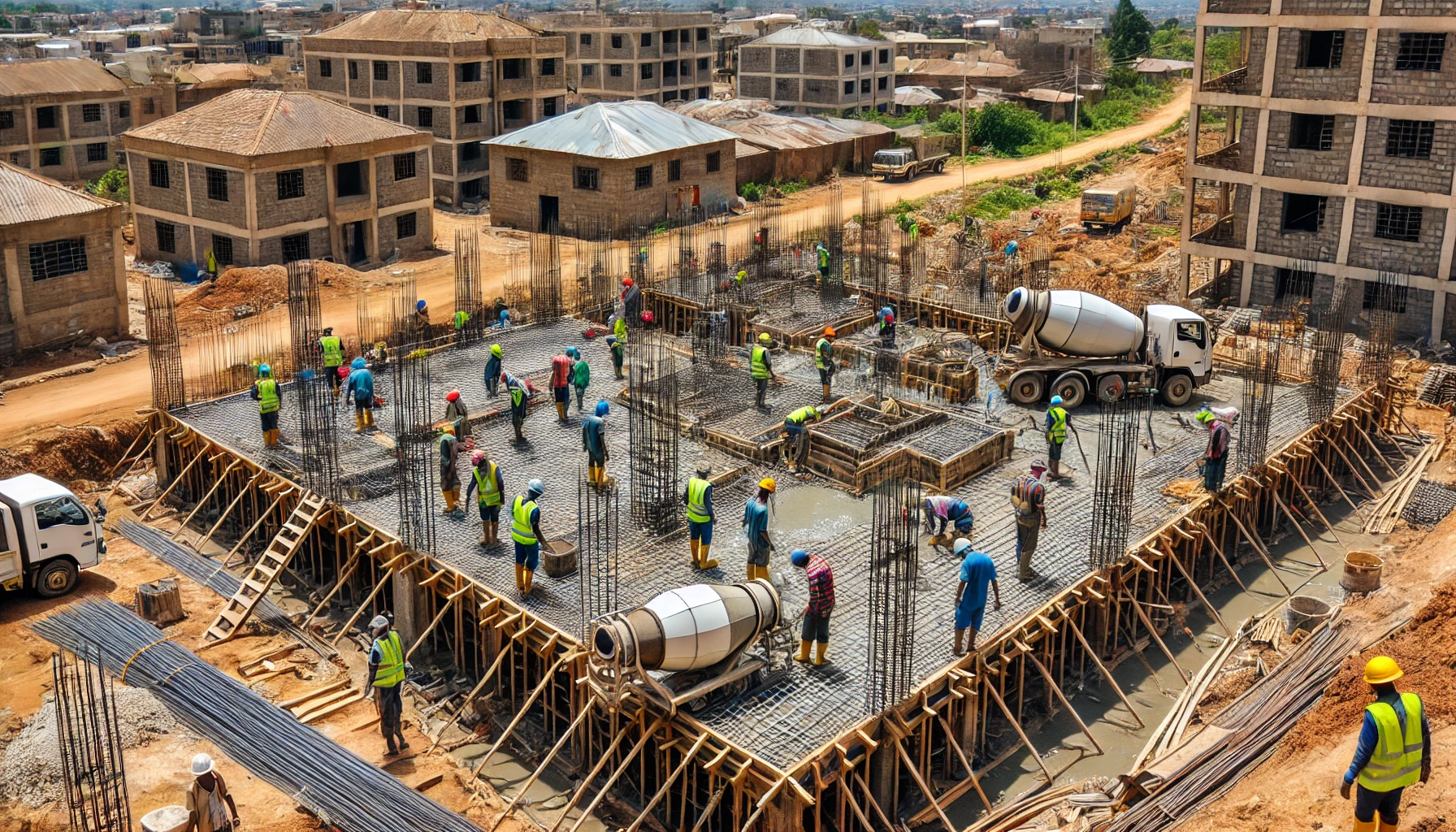




8 thoughts on “Why Invest in Kenyan Real Estate Today”